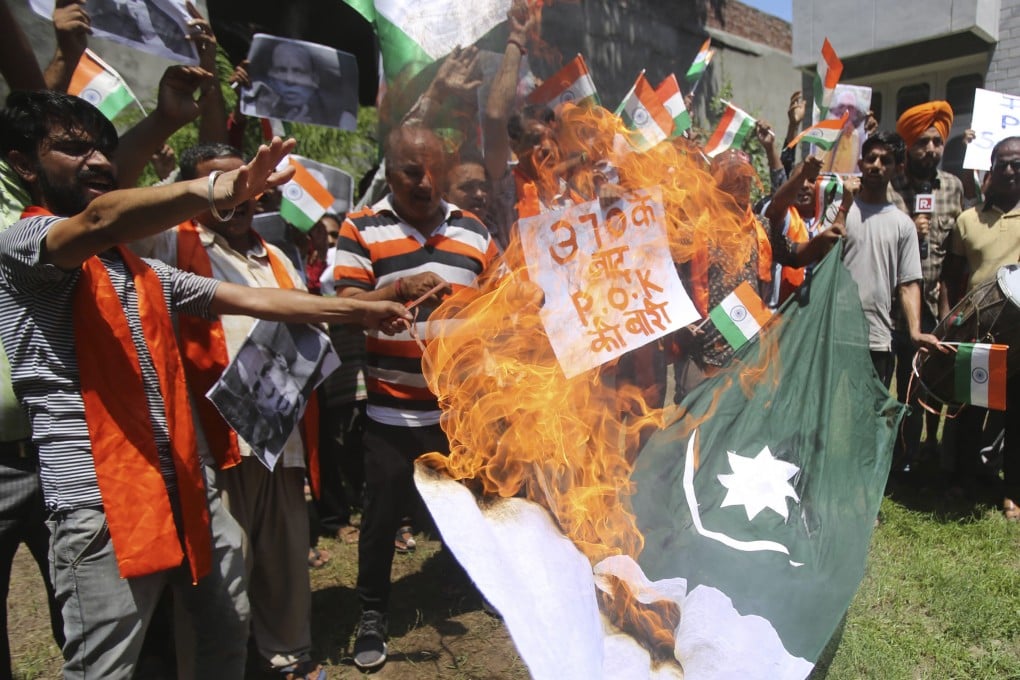India and Pakistan to send envoys to China as hostilities flare over Kashmir
- Both South Asian neighbours have consulted Beijing in a crisis before but observers say there may be little China can do to influence the situation

China is stepping in to ease tensions between Pakistan and India over Kashmir with both South Asian nations expected to send their top diplomats to Beijing.
Observers said China did not want the latest strains over the disputed territory to escalate and would urge the two countries to work for a resolution.
Pakistani Foreign Minister Shah Mehmood Qureshi told a parliamentary session on Wednesday that he might “dash off to Beijing”, according to Pakistan’s Express Tribune.
And his Indian counterpart, Subrahmanyam Jaishankar, is scheduled to meet Chinese Foreign Minister Wang Yi on Monday.
The shuttling comes after another diplomatic crisis erupted between the South Asian neighbours following India’s decision on Monday to repeal the special autonomous status of Kashmir, which both claim. India also split Kashmir in two and established the new administrative district of Ladakh, which China says also covers part of its territory.
In response, Pakistan expelled an Indian envoy, scaled down relations with India and suspended operations of a key cross-border train service.